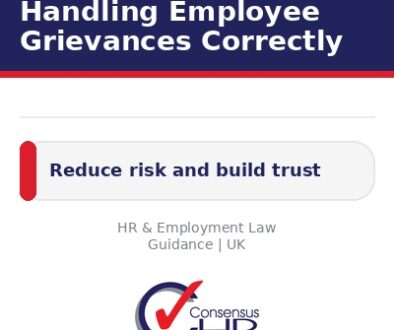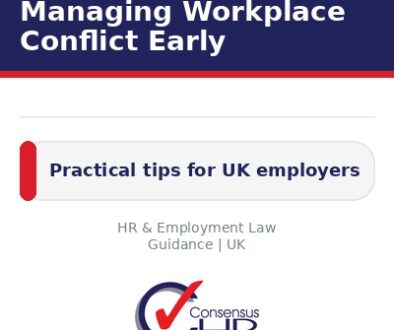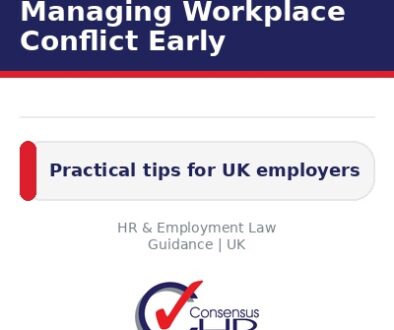Why Your Business Needs Employment Contracts

Can your business spare £25,000?
This is the amount it could cost for not providing an Employment Contract to an employee.
Are you at risk of a hefty penalty?
The Consensus HR team often provides HR Health Checks and employment law advice regarding our clients’ HR provision. One of the most common questions raised by employers is: “why do we need Employee Contracts?”.
Business owners/managers also query the benefits to the business. This is usually due to concern about investing time and funds to create Employee Contracts.
Why a business should provide Employment Contracts
An Employment Contract ensures that everyone is fully aware of:
- the main terms within the business, and
- the main terms of their employment.
It includes details such as:
- Name of employer and employee
- Pay and whether it’s weekly, monthly pay etc.
- Job description/job title
- Pensions and pension schemes
- Date employment and continuous employment started
- Working hours
- Details of any collective agreements that directly affect the employee’s conditions of employment.
- Disciplinary and grievance procedures following the Acas Code of Practice.
- Job location
- Holiday entitlement
- Sick leave and pay entitlements
- Appeals procedure under the Discipline & Grievance.
The risks of not providing Employment Contracts
It is a legal requirement for businesses to provide employees with a written statement of the terms and conditions of their employment (their Employment Contract), from their first day of employment. If this is not in place, you could be taken to an employment tribunal and fined between two and four weeks’ pay.
More importantly, written terms of employment offer some protection (for you and your employees) should there be disagreement about what was agreed. “These disagreements could result in a breach of contract claim, with a potential penalty of up to £25,000 at an employment tribunal or up to £50,000 at the High Court,” explains Matthew Pinto-Chilcott of Consensus HR. “It’s definitely not worth taking any risks.”
He adds: “When we write an Employment Contract, we ensure all required details are included. We look beyond the essential items to check what other terms may be relevant and helpful to your business. Items such as ‘Deductions from wages’ an area that is often overlooked, for example. This is needed when an employee leaves the business, is working within a probation period or has compassionate leave, to name a few scenarios.”
Are you worried about your current Employment Contract?
Would you like reassurance that your business is fully compliant and working to best practice?
YOUR OUTSOURCED HUMAN RESOURCES DEPARTMENT.
For further information on any of the HR subjects we provide, please click the heading below:





